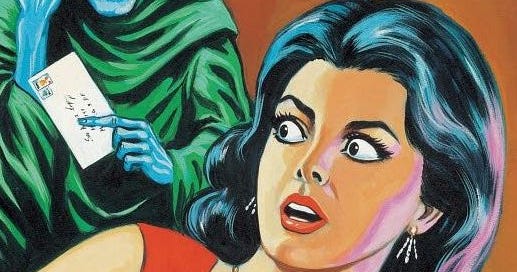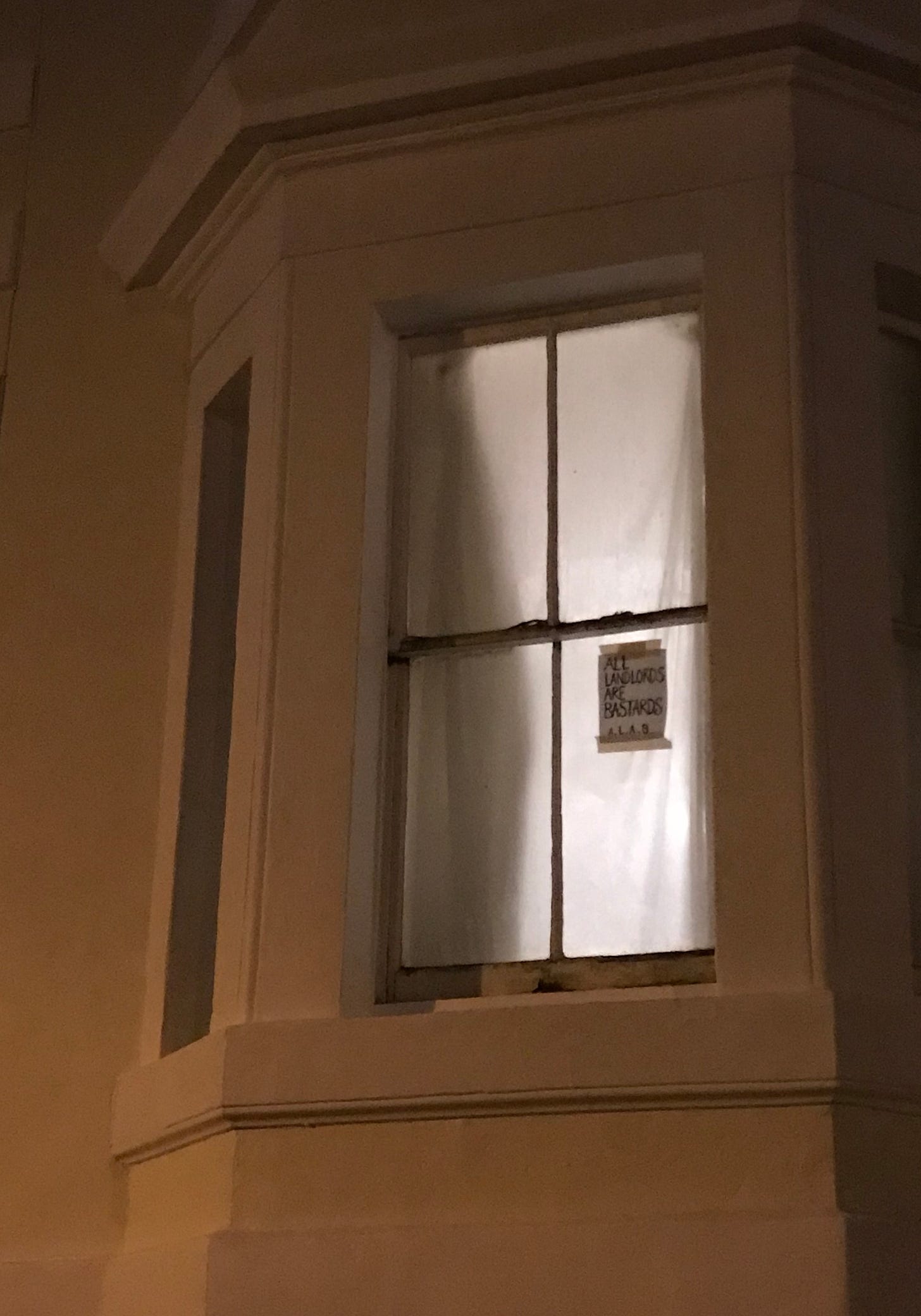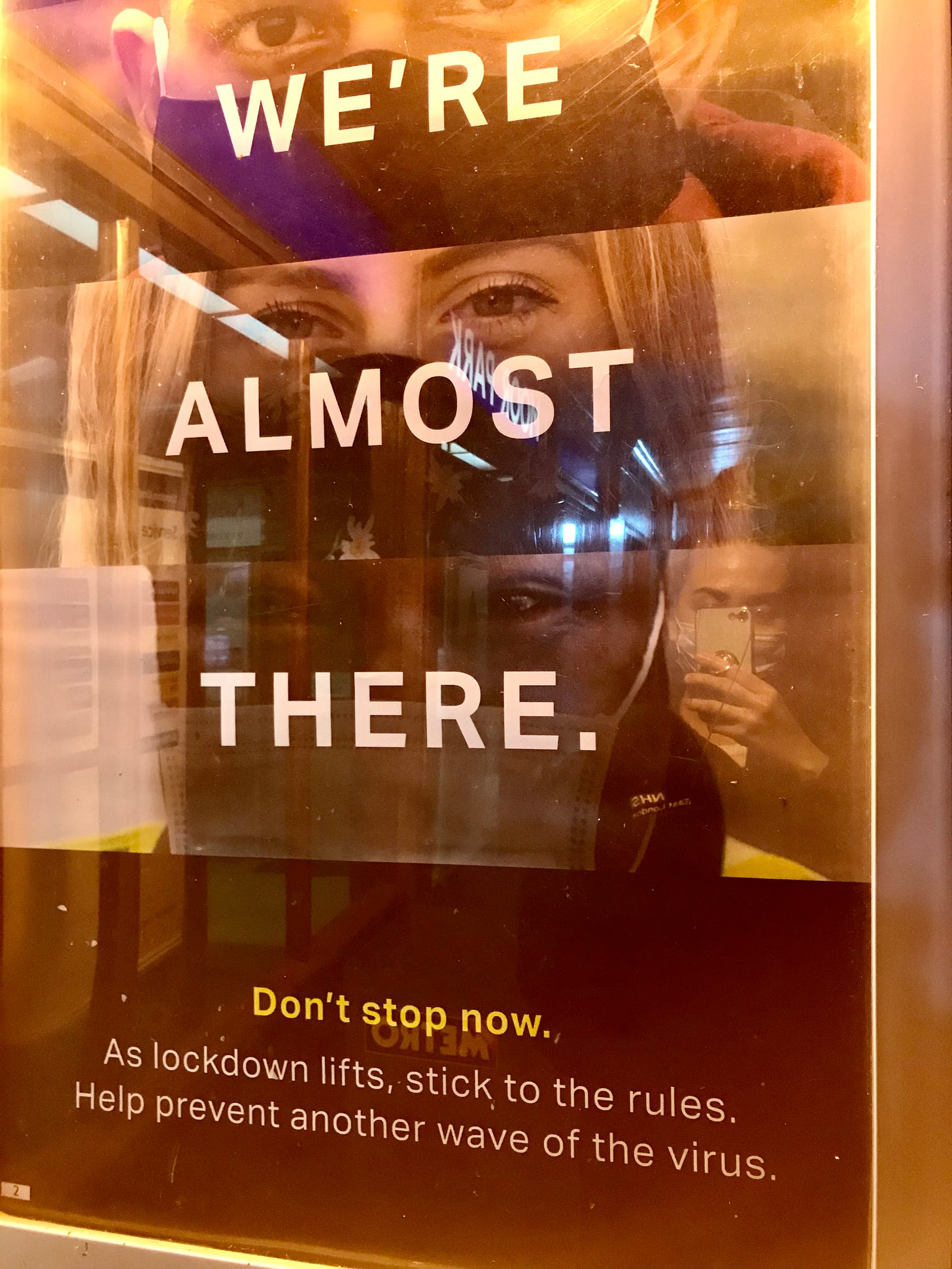An Ode to 'Bullshit Jobs'
After David Graeber’s death, I posted a quote from his book Bullshit Jobs to my Twitter account. It skewered the absurdity of how we’ve come to venerating the most pointless jobs while disparaging the most valuable. Most of all, it felt particularly moving given how Graeber’s death came in the middle of a once-in-a-lifetime pandemic that laid bare the gulf between those whose work is necessary and those who definitely knew their job was bullshit.
For a generation that’s cultivated such a complex and pathological need to tie our self-worth to our careers, what do you do exactly when you realise your job is futile? Stuck indoors, the reality that aside from, like, jury service or speed awareness courses we rarely mix with those outside of our professions or even incomes became a source of growing discomfort. And the things that would usually distract from this existential crisis of usefulness became loaded with moral ambiguity. The same things that if the employment playing field was even in the first place, everyone could enjoy — holidays abroad, cocktails with friends, restaurants and outfits to Instagram.
Me? I was unemployed again and on Universal Credit, baby.
Shortly after my post, someone replied to the effect of “and what would you say your job is then you useless PRICK?” While I thought this was a bit heavy-handed, I resisted the opportunity to reply to my new fan with “actually, I’m on the dole” because their question wasn’t out of place. In fact, they’d managed to surmise the predicament I’d been agonising over ever since limping away from office life. For someone so dangerously preoccupied with work, my CV was reading like the feckless Goldilocks of careers.
Still, I was grateful that I had a headstart on this dread. I’d now had a few years to temper my grotesque levels of self-importance honed in white-collar work with the realisation I wasted a good chunk of my twenties sat in conference rooms discussing work I didn’t care about, with managers I didn’t like, in order to complete tasks I didn’t believe had any point.
Maybe I had the upper hand? Maybe I was winning life at last! Maybe.
The eviction notice came the same day the Clio was due to be escorted to the scrapheap. Little bags of Labradoodle turds and empty IPA cans were nonchalantly dumped in our recycling by well-to-do passersby, who either thought our building was derelict or if it was inhabited we wouldn’t mind fishing literal shit out of our bins. Undeterred by neither this, the handwritten ‘All Landlords Are Bastards’ sign or us chanting “HAIL SATAN!” in the hallway, viewings of the newly-gutted flats above us came thick and fast, reminding us our days were numbered.
I pretended to temporarily forget the concept of glass as I ignored the estate agent’s fat obnoxious head bobbing past the window. Instead, I stared at the Clio, my phone balanced against the rotting wood of the sill poised for two phone calls; one about destroying my car the other from the DWP. Maybe all my exes would call too to tell me I’m unloveable just to round things off.
“Hi Joanne! How are you?”
“Joanna. I’m fine. How are you?”
“Great! I can see you’ve been applying for lots of jobs so that’s good. I’m happy to cut our catch-ups down to once a month.”
“Amazing,” I replied flatly.
“I have popped a link to another position in your journal, too.” I switched to speakerphone and held my breath as I went to check what hell-career she’d sent this time. ‘DWP Work Coach’. Well, that makes sense. Let’s go straight from jobless to a job telling the jobless how to get jobs.
“Can you do the application today?”
“....”
“Hello?”
“...Yes. I will do that. Thank you.”
I hung up and opened the link, one eye waiting for the imminent tow truck, the other scanning the questions of my fifth aptitude test of the week.
An upset customer becomes confrontational? How do you deal with the situation?
“Argue back,” I clicked immediately. Next question.
How often are you prone to anger?
“Frequently.” I kept clicking through at speed, one eye on the screen, the other still analysing the Clio.
Please outline any gaps in employment in the box below.
“No x” I typed.
I hit send, copied the job title and pasted it into my UC journal as ‘Applied’, a fly on top of the pile of ‘Not invited to interview’ applications, then went back to staring out of the sodden window.
For the past handful of years, I’ve nodded intently along to friends and strangers Falling Down fantasies of leaving the rat race behind, often agreeing a bit too energetically that their jobs are bullshit. That desire to escape to the woods and chop wood, retrain, go back to education, do something with your hands. Do a job explained by its title alone rather than one that needs a half-hour PowerPoint to decipher what it is you actually do. Anything that stops your spine shrinking over the glow of your inbox or forces you to romanticise commuting. I’ve come to learn, however, that, number one, nobody likes to be told their job is pointless, even if they themselves expect it to be true. And, number two, there is a fundamental arrogance in young professionals that no matter how lobotomising their livelihood is, other jobs are beneath them.
I remember a mid-level manager leaving VICE to move back to her hometown and become a nurse raising a few eyebrows. Though nobody was bold enough to out-and-out ask ‘but why?’, it was unspoken and sneering. Not just about income, not just about perceived skill, it was something more insidious. At the time, I was so indoctrinated that I’d sincerely thought to myself, “Really?! Give up this! [gestures to open plan office of people silently pretending to work, next to wilting Pret sandwiches and a never used ping-pong table doubling as stationery storage.]” Despite Dyson Airblades being installed the same week there were sweeping, indiscriminate redundancies and despite being on my fourth re-write of an article covertly intended to sell people headphones, I still told myself the work mattered.
None of this is to say that the ills of bullshit jobs aren’t real, of course, it’s just that they don’t make the jobs any less bullshit.
I heard the bleep of the tow truck reversing as it maneuvered through our road before the call came, and trotted outside.
“I just need you to do these papers and then we’re good to go.”
A cheerful man leaned on the Clio’s bonnet and spread the forms out across her like she was nothing more than an Argos desk, hastily marking the places I needed to sign. Another guy hopped out of the truck and began to attach the tow rope to her, then with great concentration flicked on the electric winch. She began to roll dutifully onto the truck but it quickly turned into a heave as the gammy wheel that’d been kicked back into place began to creak out of its socket again.
“WAIT!” the cheerful guy yelled, before lunging for another rope. The Clio jolted as the other guy stopped the winch. This time they opened her doors, threading and wrapping another tow rope across the dashboard, and gingerly restarting the winch.
I stood back paralysed not quite believing what happened next as in seconds the Clio broke free and began to fly back, at speed, down the plummy residential road flanked with new SUVs. Before I could scream, the cheerful guy had stunt-dived into the front, yanking up the handbrake with both arms to an ominous THWACK. Panicked, he slid out, the winch guy clambering down to join us as I cradled my face with my hands, anticipating stifling a cry.
She had stopped barely a fingernail away from the front of a slick little Mercedes. The three of us looked up at each other in relief and began to laugh. Curtains began to twitch in unison and a woman with her mop-haired child stood feet planted at us defiantly, looking on in disgust.
“What!?” I questioned across the street, turning to face her and jerking my chin up for a reply. She began to walk away shaking her head in protest, yanking the little boy with her by his wrist. But he stayed looking back, scrutinising us with all the vim of a middle-aged woman psyching themselves up to demand a refund without a receipt.
Buoyed by the euphoria of having not smashed up a stranger’s forty grand car, we tried again, one on the winch and two of us this time pushing the Clio up onto the truck with brute force.
She stubbornly started to climb the slope but disintegrated in the process. The bumper held on with cable ties for my commutes into college gigs, the wing mirror gaffer taped on for jobcentre appointments and, finally, the wheel that had ruined Christmas, all came tumbling off.
“Bye,” I said jokingly, waving at what was left of her. A crumpled mess, but at least she’d had the last laugh. “The money should be in your account in a few days,” the cheerful guy said.
“Still 150?”
“Still 150,” he replied reassuringly.
By the evening, as the high of the only excitement I had in weeks began to taper off, it was time to go back to the familiar humiliation of the job hunt. But this time I paused over an advert calling for Healthcare Assistants. ‘Your NHS needs you.’ it read, in that familiar white and blue. As I inwardly pointed to myself, thinking ‘needs...ME?’ tears started to gather in my eyes. I was needed?
Now, I should preface this with a reminder that this was not a banner day and it was the point of national lockdown where there was no telling if the instructions on a microwave meal or sock that’d been stranded after falling from the washing machine would send me into an hour of crying or frenzied laughter. But something got me right in the throat.
I had, admittedly, left it till the last minute though. After nearly a year on the lam, I’d be entering the belly of the NHS when the ‘clapping for our carers’ had pointedly stopped. The photos of those on the frontline who’d lost their lives at COVID’s height were replaced with articles on waiting times and bed shortages. The news instead turned to investigations on how the service was not fit for purpose, bloated with ‘unqualified assistants’ and beset with errors. A system on its knees that nobody believed could be dismantled before our eyes because of its omnipresence. The various discounts and perks that proudly sprung up to show the public’s appreciation were quietly and abruptly rescinded, presumably because companies had a timeline of the exact dates that key workers stopped being ‘heroes’.
In fact, the pandemic had dragged on long enough that the virus stopped being the villain and resentment, conscious or not, was veering towards those still out in the proverbial trenches. They, putting it crudely, made the rest of us feel bad. The en masse cabin fever of lockdown swirled around debates that drilled down on the details of wanting to get back to ‘normal’ as fast as possible. Bickering over masks, Primark queues and secret house parties. Some used struggles that weren’t theirs while others leapt to accusations of sanctimony, and individual mental wellbeing was invoked by all debating sides as a prophylactic to criticism. You cannot, it turns out, criticise anyone or anything if it makes someone anxious. None of it was fair, of course. Everyone was sinking in different ways. But there’s a reason I’m writing this to you in the past tense.
Hey, YOU! Yeah, you. You deserve a break, why not get on the open road and find a change of scenery...with this brand new Audi-
...this is bio-warfare and we will not have our freedom taken aw-...
…It’s been a hard year. Why not put your feet up and buy this meal-kit subscrip-?
The radio cut out as I sped through the Blackwall Tunnel. Only 24 hours left with my courtesy car and, to my delight, I’d wrangled my first training session just in time to avoid public transport. After scatter bomb applying for jobs, the last few weeks had been a flurry of action. I’d begun dressing again and closing the sofa bed, rather than lying in it all day, hotboxing on my own farts and eating Twirls. I had homework to complete and Zoom interviews to attend. I’d applied for so many positions, in fact, that I’d already received a uniform for one in the post.
I zipped on the white tunic that had been left on the doorstep and got the Casualty theme up on YouTube to really drive home the bizarreness of it, only to begin manically giggling to myself. The doorbell rang again and startled me out of the hysteria. Not seeing anyone through the peephole I crept outside to pick up another parcel only to be caught by the postman. He pulled down his mask to smile broadly then gave a thumbs-up, and I widened my eyes in confusion before remembering my bright white tunic. I was literally thieving camaraderie. And it felt great.
If you’re wondering if the thought then crossed my mind of sailing to the front of the supermarket queue, yelling “EXCUSE ME, MARTYR COMING THROUGH,” while brandishing a toy stethoscope like a detective’s ID, then you’re absolutely right. I put the tunic on a hanger with some ceremony; my sister looked it up and down like it was an enchanted cloak and my brother, who’d not seen peace on his ward since this all began, gave it a perplexed smirk over the family video call. It reminded us of mum’s uniform hung by the shower, with fob watch and lanyard still attached, which we’d be forbidden from touching before her rigorous disinfection routine. It all felt so weird. But there was always room for things to get weirder.
I arrived at the training session bang on time only to get held up by a man lugging what looked like a body bag in front of me. As I petulantly tried to dart around him he stopped to flick the zip open in one motion and revealed a motionless head and then many motionless heads. “Give us a hand would you?” he asked, suddenly acknowledging me after I’d been tailgating him up the corridor for the last five minutes.
“Do go round and introduce yourselves while I set up,” he bellowed, as I wriggled into the room from behind him and, realising I was the last to arrive, began panting so heavily with nerves I thought I might inhale my mask. The circle of strangers shuffled in their chairs scanning each other’s eyes across distanced seats for someone to go first until one of us relented. As the trainer began to pull one Resusci Anne after the other out of the bag and dispense them around the circle, the most incomprehensible selection of people was revealed. Cabin crew, teaching assistants, bar staff, hotel receptionists, retired nurses, paramedics and firemen, a body piercer, and me.
After the initial fever dream of the introductions, however, the pace of the day shook off any remaining uncanniness. How to put on the PPE, how we’d be fitted with specialist masks to protect us in emergencies, how the kiss of life had been sidelined by a killer virus. Needlestick injuries, anaphylaxis, vital signs, patient conflict. Nothing, however, could’ve dulled the surreality of practicing chest compressions, using the dulcet tones of “Baby Shark” to keep rhythm, as a British Airways steward punctuated the beat with gentle words of encouragement. “Yes, babes, keep going, I’ll get the defib babes!”
I was surprised at how knackered I felt, tired in my bones, as the day drew to a close. Possibly because I’d spent the last month sleeping in until 2 pm, but nevertheless. We rolled and stretched out on the carpet in relief, as the trainer packed away the equipment. Opening up the body bag again he offhandedly offered a Jerry Springer final thought. “It’s been a frightening time for everyone, just remember it can make people behave in strange ways...All you can do is stay safe out there and ask for help when you need it.”
The fidgeting stopped. ‘Out there’, y’know? I felt the lump forming in my throat again and began remonstrating with myself to stop being such a pussy until, eventually, a booming clap from the back of the room broke the quiet. The rest of us began to join in. And so there we were, awkwardly clapping another NHS worker for whom claps would never be enough because we didn’t know what else to do.
It would be a few weeks before I booked my first bank shift and, in the interim, I tried to mentally level myself somewhere between the initial hysteria and that heaviness. When the time came, I didn’t laugh as I smoothed down the uniform, pulled my hair into a bun, and, in the half-light of dawn, set off for my first twelve-hour stretch.





